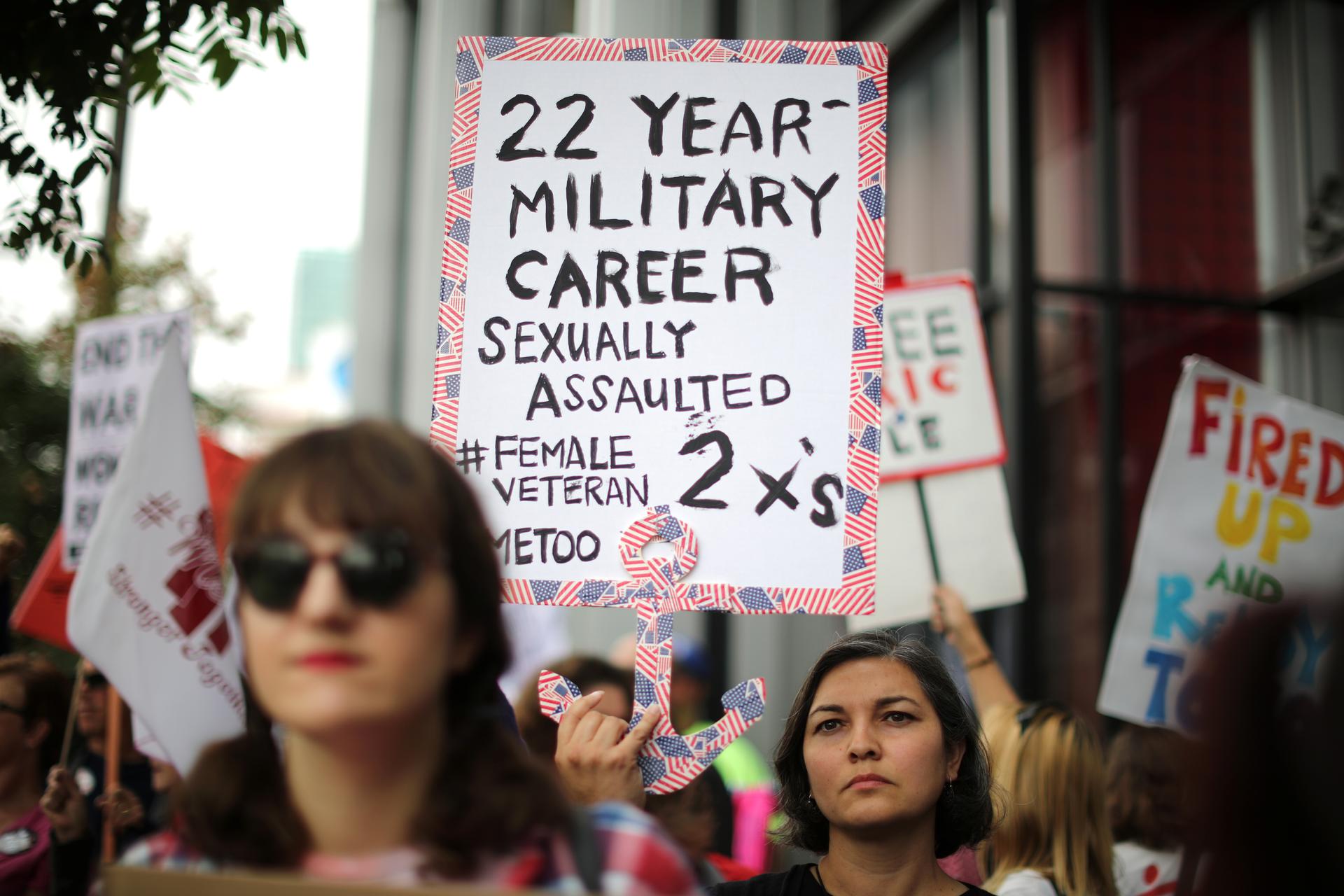Women in the US military want their voices added to the #MeToo movement. Women veterans say sexual assault and harassment are rarely reported out of fear of retribution.
Watching the large numbers of women who've come forward to speak out about their experiences of being sexually harassed and assaulted in the workplace, some women veterans say it hasn't been as easy for them to confront sexual crimes in their ranks.
"You know, these are the people who serve our country and risk their lives every day," says Nichole Bowen-Crawford. She was in her early 20s and in one of the first units to cross into Iraq during Operation Iraqi Freedom in 2003. She was working the night shift when she alleges that she was sexually assaulted by a fellow soldier.
Bowen-Crawford told her supervisor who suggested she not take her complaint up the chain of command because it would hurt her career. "People in the military can't report sexual assault or harassment without retaliation because they have to use their chain of command, and oftentimes the chain of command are the perpetrators."
Bowen-Crawford was taken off the night shift but still forced to work alongside her accused attacker — while remaining silent.
This took place, she says, amid the daily deluge of military strikes. "There were constantly bombs going off. We never knew when we were driving to and from, if we were going to run over an IED [improvised explosive device] or if our lives could be over in the next minute or so … so at the same time I was experiencing all of the traumas of combat, I was also going through all of the traumas of sexual harassment."
A Pentagon report showed that nearly 15,000 service members were sexually assaulted during the fiscal year 2016, which was one-fourth fewer than in 2014. It also revealed that 1 in 3 service members reported their assaults, which increased from 10 years ago when only 1 in 14 service members reported the crime.
Bowen-Crawford says the military has made progress.
"Even though the situation is really dire, it's gotten better," she says, as the Pentagon has tried to educate service members. Those improvements don't come as quickly as she and other victims would like, however. "The military has always been a slow adapter to change," she adds.
When do we see the military brass held accountable for sexual abuses? That's what members of the Service Women's Action Network, or SWAN, are asking. Bowen-Crawford and other female veterans traveled to Washington for the #MeTooMilitary Stand Down protest outside the Pentagon.
They were emboldened by Oprah Winfrey's speech at the Golden Globes the night before, about the #MeToo movement and the women who'd been sexually assaulted.
"They're the women whose names we'll never know. They are domestic workers. And farm workers. They are working in factories and they work in restaurants and they're in academia, and engineering and medicine and science. They're part of the world of tech and politics and business. They're our athletes in the Olympics, and they're our soldiers in the military," Winfrey said during the ceremony.
This just the beginning, says Bowen-Crawford. She and other women veterans recommend establishing private channels to report sexual harassment without fear of retribution.
Our coverage reaches millions each week, but only a small fraction of listeners contribute to sustain our program. We still need 224 more people to donate $100 or $10/monthly to unlock our $67,000 match. Will you help us get there today?
